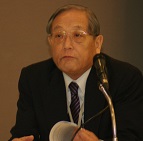Fiscal Policy and Multilateral Cooperation: Challenges andOpportunities for Philippine Connectivity
DOI:
https://doi.org/10.64423/arpa.v32i2.14Keywords:
Fiscal Policy, Multilateral Cooperation, Infrastructure Financing, Public-Private Partnerships, Debt ManagementAbstract
The Asia-Pacific’s connectivity ambitions highlight the need for sound fiscal policies to address infrastructure gaps and ensure sustainable development. This study explores how the Philippines can optimize access to multilateral funding from the AIIB and ADB by leveraging fiscal strategies like debt management, public-private partnerships, and budgetary reforms. It examines challenges such as limited fiscal space, governance issues, and geopolitical dynamics while advocating for fiscal transparency, improved project evaluation, and institutional capacity-building. By aligning national policies with regional priorities, the Philippines can strengthen multilateral cooperation, advance sustainable infrastructure investments, and contribute to inclusive economic growth and regional integration.
References
Abidin, M. Z. (2010). Fiscal policy coordination in Asia: East Asian Infrastructure Investment Fund (No. 232). International Institute of Advanced Islamic Studies (IAIS) Malaysia. https://papers.ssrn. com/sol3/Delivery.cfm?abstractid=1654305
Banaag, M. S., Mendoza, R. U., Peñalosa, J. E., Edillon, R. G., Mayer, H., Hutchcroft, P. D., Tayao, E. S., Magno, F. A., Rasul, S. P., Corpuz, A. G., Manasan, R. G., & Brillantes Jr., A. B. (2018). Critical perspectives on federalism for regional development. Philippine Institute for Development Studies. https://pidswebs.pids.gov.ph/CDN/PUBLICATIONS/pidsbk2018-appc2017.pdf#page=54
Banerjee, S. (2023). Enhancing fiscal space and ensuring sustainable financing (MPFD Working Paper Series, No. WP/23/01). ESCAP. https://repository.unescap.org/bitstream/handle/20.500.12870/5432/ ESCAP-2023-WP-enhancing-fical-space-WP2301.pdf?sequence=1&isAllowed=y
Bangura, Y. (2000). Public sector restructuring: The institutional and social effects of fiscal, managerial and capacity-building reforms (Working Paper No. 3). United Nations Research Institute for Social Development (UNRISD). https://www.econstor.eu/bitstream/10419/148799/1/862964695.pdf
Basilio, J. R., Britt-Fermo, L., & Cacnio, F. C. Q. (2022). Quantifying the macroeconomic impact of the Philippine fiscal and monetary responses to the COVID-19 pandemic. BSP Research Academy. https://www.bsp.gov.ph/Sites/researchsite/Publications/BSP-Discussion-Papers/DP202205.pdf
Baviera, A. S. P., & Arugay, A. A. (2021). The Philippines’ shifting engagement with China’s Belt and Road Initiative: The politics of Duterte’s legitimation. Asian Perspective, 45(2), 277-300. https:// doi.org/10.1353/apr.2021.0001
Beja, E. (2009). The Philippines on debt row (MPRA Paper No. 23232). Munich Personal RePEc Archive. https://mpra.ub.uni-muenchen.de/23232/1/MPRA_paper_23232.pdf
Canlas, D. B. (2007). Political governance, economic policy reforms, and aid effectiveness: The case of the Philippines with lessons from the Ramos administration. University of the Philippines, Diliman, National Graduate Institute for Policy Studies (GRIPS). https://gdforum.sakura.ne.jp/ en/pdf_e03/seminar2007/6june07/canlas1.pdf
Canlas, D. B., & Debuque-Gonzales, M. (2020). Decentralized infrastructure development in the Philippines: Constraints, governance, and regulation in water (UPSE Discussion Paper No. 2020-12). University of the Philippines School of Economics (UPSE). https://www.econstor.eu/bitstream/10419/243070/1/1703775724.pdf
Canton, H. (2021). Asian Development Bank-ADB. In The Europa Directory of International Organizations 2021 (23rd ed., p. 5). Routledge. https://www.taylorfrancis.com/chapters/ edit/10.4324/9781003179900-69/asian-development-bank%E2%80%94adb-helen-canton
Corsetti, G., & Müller, G. J. (2013). Multilateral economic cooperation and the international transmission of fiscal policy. In R. C. Feenstra & A. M. Taylor (Eds.), Globalization in an age of crisis: Multilateral economic cooperation in the twenty-first century (pp. 257–297). University of Chicago Press. https://www.nber.org/system/files/chapters/c12593/c12593.pdf
Creutz, K. (2023). Multilateral Development Banks as Agents of Connectivity: the Asian Development Bank (ADB) and the Asian Infrastructure Investment Bank (AIIB). East Asia, 40, 335-356. https:// doi.org/10.1007/s12140-023-09408-6
Dakila, F. G. (2021). Dynamics of monetary policy and fiscal policy during the pandemic: The Philippine experience. BIS Papers, 122, 217-238. https://www.bis.org/publ/bppdf/bispap122_q.pdf
De Jonge, A. (2017). Perspectives on the emerging role of the Asian Infrastructure Investment Bank. International Affairs, 93(5), 1061–1084. https://www.chathamhouse.org/sites/default/files/ INTA93_5_03_DeJonge.pdf
Debuque-Gonzales, M., Diokno-Sicat, C. J., Corpus, J. P. P., Palomar, R. H. G., Ruiz, M. G. C., & Miral, R. M. L. (2022). Fiscal effects of the COVID-19 pandemic: Assessing public debt sustainability in the Philippines (PIDS Discussion Paper Series, No. 2022-17). Philippine Institute for Development Studies (PIDS). https://www.econstor.eu/bitstream/10419/284554/1/pidsdps2217.pdf
Diokno, B. E. (2007). Economic and fiscal policy determinants of public deficits: The Philippine case (UPSE Discussion Paper, No. 2007,02). University of the Philippines School of Economics (UPSE). https://www.econstor.eu/bitstream/10419/46651/1/538098449.pdf
Doraisarni, A. (2011). The global financial crisis: Countercyclical fiscal policy issues and challenges in Malaysia, Indonesia, the Philippines, and Singapore (ADBI Working Paper No. 288). Asian Development Bank Institute (ADBI). https://www.econstor.eu/ bitstream/10419/53590/1/662058313.pdf
Endo, K., & Seetharam, K. E. (2021). Public-private partnerships in developing Asian countries: Practical suggestions for future development assistance (No. 2021-5). Asian Development Bank Institute. https://www.adb.org/sites/default/files/publication/734081/adbi-brief-ppp-developing- asian-countries-3rd.pdf
Go, E., Hill, S., Jaber, M. H., Jinjarak, Y., Park, D., & Ragos, A. (2022). Developing Asia’s fiscal landscape and challenges (ADB Economics Working Paper Series No. 665). Asian Development Bank. http://dx.doi.org/10.22617/WPS220267-2
Graham, E. R. (2015). Money and multilateralism: how funding rules constitute IO governance. International Theory, 7(1), 162-194. https://doi.org/10.1017/S1752971914000414
Guinigundo, D. C. (2012). Fiscal policy, public debt management and government bond markets: the case for the Philippines. BIS Papers, 67, 269-283. https://www.bis.org/publ/bppdf/bispap67s.pdf
Herrera Dappe, M., Foster, V., Musacchio, A., Ter-Minassian, T., & Turkgulu, B. (2023). OFF the BOOKS: Understanding and Mitigating the Fiscal Risks of Infrastructure. World Bank Group. https://openknowledge.worldbank.org/bitstreams/f2e5c1e7-3ba8-44ca-bc7d-2f0803881d66/ download
Ji, X., & Rana, P. B. (2024). Asian Development Bank and the Belt and Road Initiative: challenges and opportunities. Edward Elgar Publishing. https://www.elgaronline.com/edcollchap/ book/9781800882966/book-part-9781800882966-7.xml
Kennedy, S. F., & Qayyum, F. (2023). Land acquisition governance and its implications for renewable energy development in Indonesia and the Philippines. Journal of Planning Education and Research, 44(4), 2056–2067. https://doi.org/10.1177/0739456X221147859
Komatsuzaki, T. (2019). Improving public infrastructure in the Philippines. Asian Development Review, 36(2), 159–184. https://doi.org/10.1162/adev_a_00135
Kyaw, P. P. (2021). Analysis on cooperation between Asian Infrastructure Investment Bank (AIIB) and ASEAN countries. J. Myanmar Acad. Art Sci, XIX(No.7), 245-255. http://maas.edu.mm/ Research/Admin/pdf/22.%20Daw%20%20Phyu%20Phyu%20Kyaw(245-256).pdf
Lee, D. J., Cheng, G., Malik, H. A., Saxena, S. C., Sirimaneetham, V., Zhuo, L., Abarquez, N., Huang, Z., & Pongpanich, K. (2020). An assessment of fiscal space for COVID-19 response and recovery in Asia-Pacific developing countries (MPFD Policy Briefs No. 116). United Nations Economic and Social Commission for Asia and the Pacific. https://repository.unescap.org/bitstream/ handle/20.500.12870/1076/ESCAP-2020-PB -MPFD -assessment-fiscal-space-COVID19- response-recovery-n116.pdf?sequence=4
Llanto, G. M. (2012). The assignment of functions and intergovernmental fiscal relations in the Philippines 20 years after decentralization. The Philippine Review of Economics, 49(1), 37-80. https://pre.econ.upd.edu.ph/index.php/pre/article/viewFile/671/777
Lola, O. G., Oni, M. A., & Adebogun, O. B. (2023). Debt management for sustainable infrastructure development: a systematic review. Political Science and Security Studies Journal, 4(2), 31-42. http://psssj.eu/index.php/ojsdata/article/download/116/151
Magno, F. A. (2015). Public participation and fiscal transparency in the Philippines. Global Initiative for Fiscal Transparency. https://fiscaltransparency.net/wp-content/uploads/2021/05/20150706115. pdf
Montes, M. F. (1980). The political economy of fiscal policy in the Philippines. https://opendocs.ids.ac.uk/articles/report/Financing_development_the_political_economy_of_fiscal_policy_in_the_ Philippines/26443723/1/files/48091657.pdf
Musa, B. Y. (2024). Paths to successful debt management reform implementation. WAIFEM. https://thedocs.worldbank.org/en/doc/635e25058108c579ffa97d2c5bee5539-0350012024/related/Session7-Baba-Musa.pdf
Nasution, A. (2005). Monetary cooperation in East Asia. Journal of Asian Economics, 16(3), 422–442. https://doi.org/10.1016/j.asieco.2005.04.005
Navarro, A. M. (2024). Challenges and opportunities in subnational public-private partnerships in the Philippines (No. 2024-43). Philippine Institute for Development Studies (PIDS). https://www. econstor.eu/bitstream/10419/311666/1/1916589839.pdf
Navarro, A. M., & Llanto, G. M. (2014). Financing infrastructure in the Philippines: Fiscal landscape and resources mobilization (Discussion Paper No. 2014-01). Philippine Institute for Development Studies. https://pidswebs.pids.gov.ph/CDN/PUBLICATIONS/pidsdps1401.pdf
Sims, K. (2020). The ADB and AIIB. Routledge. https://www.taylorfrancis.com/chapters/edit/10.4324/9780367853808-10/adb-aiib-kearrin-sims
Smets, S. (2015). Water supply and sanitation in the Philippines: Turning finance into services for the future (English). Water and Sanitation Program. Washington, D.C.: World Bank Group. Retrieved from http://documents.worldbank.org/curated/en/469111467986375600
Wu, X., & Velasco, J. C. (2022). Examining the Philippines’ China policy: Great powers and domestic politics. Australian Journal of International Affairs, 76(6), 672-693. https://doi.org/10.1080/10357718.2022.2085242
Yap, J. T., Medalla, E. M., & Balboa, J. D. (2007). Closer trade and financial cooperation in ASEAN: Issues at the regional and national level with focus on the Philippines (PIDS Discussion Paper Series, No. 2007-03). Philippine Institute for Development Studies (PIDS). https://www.econstor. eu/bitstream/10419/127942/1/pids-dps2007-03.pdf
Downloads
Published
Issue
Section
License
Copyright (c) 2024 Severo C. Madrona Jr.

This work is licensed under a Creative Commons Attribution-NonCommercial 4.0 International License.













